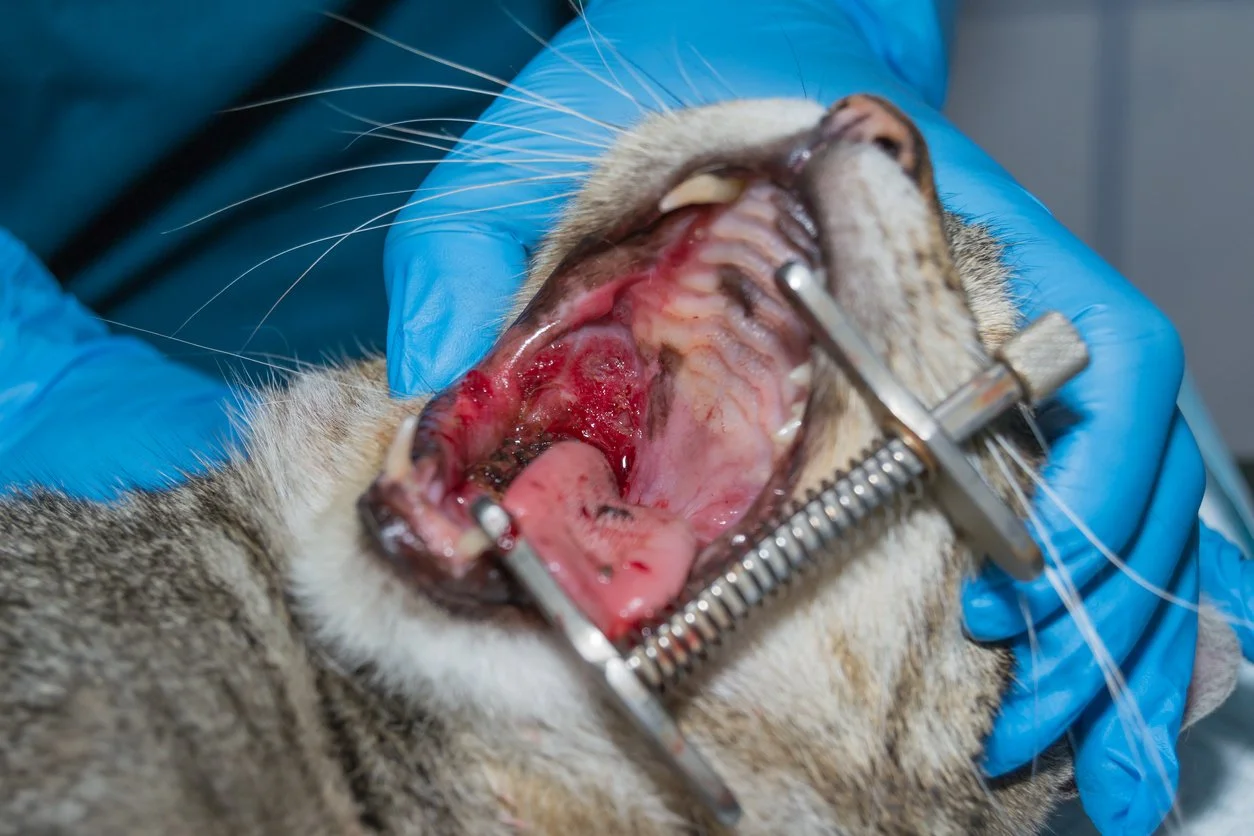What is Stomatitis?
Stomatitis is very painful for a cat
Stomatitis in cats is a painful and inflammatory condition that affects the mucous membranes of the mouth, particularly the gums and the back of the throat. It is characterized by the inflammation of the oral tissues, and it can be a challenging and chronic condition to manage.
Here are some key points about stomatitis in cats:
Causes:
Dental Disease: Stomatitis is often associated with severe dental disease, including gingivitis and periodontitis.
Immune System Disorders: Cats with compromised immune systems may be more prone to developing stomatitis.
Viral Infections: Feline calicivirus and feline herpesvirus are viral infections that can contribute to stomatitis.
Allergies: Some cats may develop stomatitis as a result of allergic reactions to certain foods or other environmental factors.
Symptoms:
Drooling
Bad breath (halitosis)
Difficulty eating or reluctance to eat
Pawing at the mouth
Weight loss
Red and inflamed gums
Ulcers on the gums and tongue
Diagnosis:
Diagnosing stomatitis typically involves a thorough examination of the cat's mouth by a veterinarian. Dental X-rays may be necessary to assess the extent of dental disease. In some cases, blood tests may be conducted to check for underlying systemic issues.
Treatment:
Dental Care: Treatment often involves dental cleanings, extractions, and other dental procedures to address the underlying dental disease.
Pain Management: Stomatitis is painful, and pain management is a crucial aspect of treatment. Pain medications and anti-inflammatory drugs may be prescribed.
Immune System Support: In cases where stomatitis is related to immune system disorders, immune system support may be recommended.
Antibiotics: If there is evidence of bacterial infection, antibiotics may be prescribed.
Long-Term Management:
Stomatitis can be a challenging condition to manage, and long-term care may be necessary. Some cats may require ongoing dental care and medication to control inflammation and pain.
Prevention:
Preventing stomatitis involves regular dental care, including routine dental cleanings, brushing your cat's teeth, and providing dental-friendly treats or toys.
If you suspect that your cat may have stomatitis or if you notice any signs of oral discomfort, it's important to consult with a veterinarian promptly. Early intervention and appropriate treatment can help improve the quality of life for cats with stomatitis.
Dental work, including the removal of teeth, can help a cat with stomatitis be more comfortable


